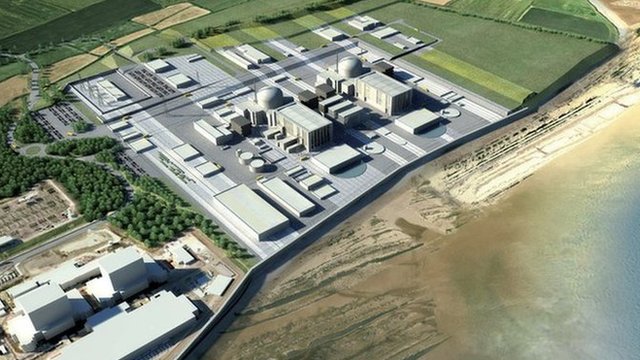Data: UK households to spend £33 a year in nuclear subsidies after 2025

The proposed deal between the UK, China and the French state owned EDF to build a new fleet of three nuclear power stations will cost the average bill-payer more than £30 a year, according to an Unearthed analysis — a total subsidy of £2.6bn per year.
The deal – which stretches over 30 years and could single-handedly push up bills by over 5% – comes despite a promise by the UK chancellor George Osborne to scrap subsidies for other forms of green energy by 2020. Recently a senior government official suggested the UK would end all renewable subsidies by 2025.
The Unearthed analysis is based on the difference between the “strike price” the government has provisionally agreed to pay EDF for power from the Hinkley and Sizewell nuclear plants and the current wholesale price of power (£45/Mwh) – it also assumes the carbon price remains low.
Our analysis then assumes the third plant – Bradwell – which is likely to be the first using a new technology to be built in the UK comes in at a similar price accounting for around £10 of the total cost to bill-payers.
Subsidies for low-carbon energy currently add around £45 a year to bills, a figure expected to rise to around £100 by 2020 – according to the government’s independent climate advisors, the Committee on Climate change.
The new deal, therefore, will account for a 30% increase in low-carbon energy subsidies and over 70% of what we pay today.
The CCC suggest that should the government wish to meet its legally binding climate targets it will need to ensure the power sector is close to decarbonised by 2030.
However the new nuclear power plants are far more expensive than previously thought meaning the £2.6bn a year subsidy could account for between 50 and 80% of the available budget for decarbonisation suggested by the the CCC.
In short that means there will be little cash left over for other forms of low-carbon energy such as wind & solar power and could set up conflict in the UK’s power system between ‘smart’ and variable forms of power generation including gas and renewables and ‘always-on’ nuclear plants.
It comes as the chief executive of the National Grid has suggested that that the era of large ‘baseload’ power stations is over arguing that solar is the ‘new baseload’ in collaboration with storage.

